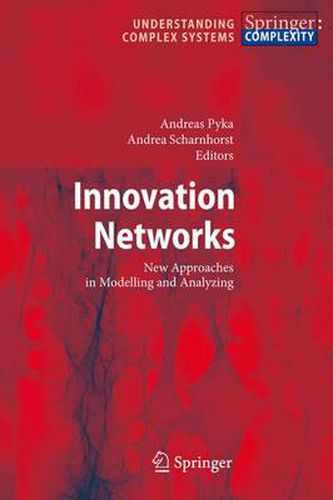Readings Newsletter
Become a Readings Member to make your shopping experience even easier.
Sign in or sign up for free!
You’re not far away from qualifying for FREE standard shipping within Australia
You’ve qualified for FREE standard shipping within Australia
The cart is loading…






This title is printed to order. This book may have been self-published. If so, we cannot guarantee the quality of the content. In the main most books will have gone through the editing process however some may not. We therefore suggest that you be aware of this before ordering this book. If in doubt check either the author or publisher’s details as we are unable to accept any returns unless they are faulty. Please contact us if you have any questions.
social network analysis has been an established eld since the 1950s; in computer and information sciences, in biology, and of course in mathematics (graph theory) networks are central representations of objects and methods (De Nooy, forthc- ing). More detailed bibliometric studies have examined the individual, cognitive, and institutional composition of complex network theory (Morris and Yen 2004), and social network theory (Otte and Rousseau 2002). Among the more impor- .. tant pieces of literature are Borner et al. (2007), Bornholdt and Schuster (2003), Buchanan (2002), Dorogovtsev and Mendes (2003), Otte and Rousseau (2002), Newman (2003), and Watts (1999, 2004). Of these, Borner .. et al. (2007) stand out because they have most recently re-examined network science, considering it as a possible innovation in information science. All the reviews mentioned include efforts to build bridges between different scienti c disciplines and specialties. In this book we draw particular attention to the link between evolutionary economics and statistical physics. Despite this impressive development, claims that an entirely new science has been created (Barabasi ‘ 2002) have nevertheless been the subject of criticism. - depth analyses of a subset of complex networks contributions (1991-2003) have shown that the notion of complex networks was already prevalent in a number of different elds before it became practically a brand name or the popular label for a new specialty area in physics, or a new cross-disciplinary paradigm.
$9.00 standard shipping within Australia
FREE standard shipping within Australia for orders over $100.00
Express & International shipping calculated at checkout
This title is printed to order. This book may have been self-published. If so, we cannot guarantee the quality of the content. In the main most books will have gone through the editing process however some may not. We therefore suggest that you be aware of this before ordering this book. If in doubt check either the author or publisher’s details as we are unable to accept any returns unless they are faulty. Please contact us if you have any questions.
social network analysis has been an established eld since the 1950s; in computer and information sciences, in biology, and of course in mathematics (graph theory) networks are central representations of objects and methods (De Nooy, forthc- ing). More detailed bibliometric studies have examined the individual, cognitive, and institutional composition of complex network theory (Morris and Yen 2004), and social network theory (Otte and Rousseau 2002). Among the more impor- .. tant pieces of literature are Borner et al. (2007), Bornholdt and Schuster (2003), Buchanan (2002), Dorogovtsev and Mendes (2003), Otte and Rousseau (2002), Newman (2003), and Watts (1999, 2004). Of these, Borner .. et al. (2007) stand out because they have most recently re-examined network science, considering it as a possible innovation in information science. All the reviews mentioned include efforts to build bridges between different scienti c disciplines and specialties. In this book we draw particular attention to the link between evolutionary economics and statistical physics. Despite this impressive development, claims that an entirely new science has been created (Barabasi ‘ 2002) have nevertheless been the subject of criticism. - depth analyses of a subset of complex networks contributions (1991-2003) have shown that the notion of complex networks was already prevalent in a number of different elds before it became practically a brand name or the popular label for a new specialty area in physics, or a new cross-disciplinary paradigm.